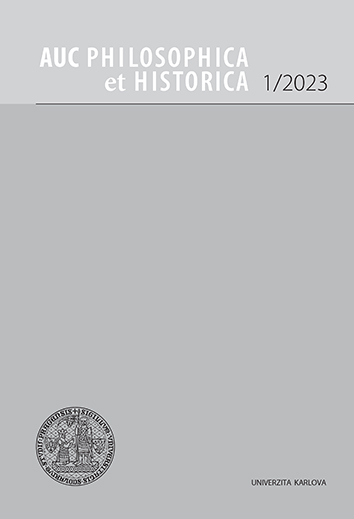AUC Philosophica et Historica (Acta Universitatis Carolinae Philosophica et Historica) is a multidisciplinary academic journal focused on the humanities with more than 50 years of tradition.
The journal is indexed in CEEOL, DOAJ, and EBSCO.
AUC PHILOSOPHICA ET HISTORICA, Vol 1975 No 1 (1975), 9–25
Ke krizi sociologie v buržoazní průmyslově vyspělé společnosti
[The Sociological Crisis in Industrially Advanced Bourgeois Societies]
Eduard Urbánek
DOI: https://doi.org/10.14712/24647055.2018.125
published online: 15. 01. 2018
abstract
Only some two decades ago, many principles and solutions in non-Marxist bourgeois sociology were regarded at indestructible and self-evident. Only isolated critics like C. W. Mills in the fifties criticized the barrenness of empiricism and abstract big teories. The starting point of American-type empirical sociology or the reference frame of structural functionalism were self-evident assumptions for most sociologists. By the end of the sixties, the situation had radically changed. Doubth began to creep in and attacks were made on the self-evidence of certain basic empirical points of departure, the conceptions of value-free sociology, statements about the value, moral and political apathy or neutrality of methods and techniques of sociological research and so-called objectivity and the non-ideology of sociology. Among the most outspoken critics official American and western sociology is A. Gouldner. He notes the approaching and in fact current, crisis of academic official sociology and particularly the crisis of structural functionalism. He directs his analysis of the crisis to a study of the social reasons for it; he attempts to link up the development of sociology with the stage of development of bourgeois society, chiefly with the development of the so-called state of prosperity. But he detracts from his criticism by superficial judgements on the development on Marxist sociology, is unable to precisely and clearly define those social classes which in western capitalist society should play a decisively progressive role. R. Boudon regards the reason for the crisis chiefly on the epistemological level. He sees the solution in epistemological and methological analyses, particularly in elaborating a sociological language, with the accent on the importance of mathematized sociology and the history of the philosophy of science. He overlooks and underestimates the social and class roots of the existing sociological crisis, seeking the answer in more modem neo-positivist emphasis of more precise instruments of logical analyses an unambiguous language of science. Regardless of the differences in viewpoints and the inconsistencies of basic principles in explaining the reasons for the crisis of bourgeois sociology, Gouldner and Boudon deserve credit for calling attention to the crisis in this sociology and for trying, with varying results, to explain it.
